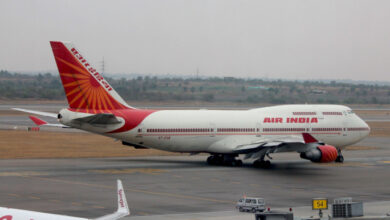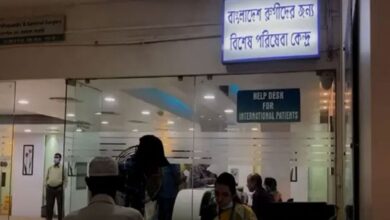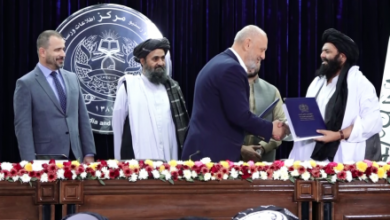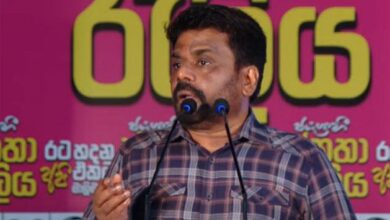Sri Lanka top court finds Rajapaksa brothers guilty of economic crisis
The symbolic ruling says the powerful brothers – including two ex-presidents – triggered the island’s worst financial crisis.
![Sri Lankan protesters dressed as ex-President Gotabaya Rajapaksa, right, ex-finance minister Basil Rajapaksa, left, and ex-PM Mahinda Rajapaksa [File: Eranga Jayawardena/AP]](https://southasiancorrespondent.com/wp-content/uploads/2023/11/Sri-Lanka.webp)
Sri Lanka’s Supreme Court has issued a symbolic ruling that the powerful Rajapaksa brothers – including two ex-presidents – were guilty of triggering the island’s worst financial crisis by mishandling the economy.
In a majority verdict on multiple petitions filed by academics and civil rights activists, a five-judge bench of the Supreme Court on Tuesday ruled that the respondents, who all later resigned or were sacked, had violated public trust.
The case was filed by corruption watchdog Transparency International Sri Lanka (TISL) and another four activists against top former officials, including former presidents Gotabaya Rajapaksa and Mahinda Rajapaksa.
It also included their younger brother, ex-finance minister Basil Rajapaksa, two former central bank governors and other top treasury officials.
“We sought a declaration from the court that the mishandling or inaction on the economy by the former heads of the state and senior officials did violate the fundamental rights of people,” Transparency International lawyer Nadishani Perera told AFP news agency Tuesday.
“We have received that. It is now up to the citizens to take any further action.”
The top court’s bench ruled 4-1 that the group was responsible for economic mismanagement between 2019 and 2022, ordering them to pay just over $458 (150,000 Sri Lankan rupees) as legal costs to the petitioners.
“Given that petitioners came to court in the interest of the public and did not seek compensation for themselves, the court was not inclined to order compensation other than costs incurred by petitioners,” Transparency International said in a statement.
Sri Lanka declared bankruptcy last year. As of September 2023, it had $35.1bn in foreign debt, of which 19 percent was owed to China, 7 percent to Japan, and 5 percent to India, according to media reports.
The International Monetary Fund (IMF) said Sri Lanka’s public debt was at 128 percent of its gross domestic product at the end of last year, which it said was “unsustainable”. In March this year, the island received the first $330m tranche of the IMF’s nearly $3bn bailout package.
The financial crisis sparked months of public protests with dire shortages of food, fuel and medicines, which eventually toppled Gotabaya Rajapaksa.
Rajapaksa centralised power after taking office in 2019 by removing independent oversight from the police, judiciary and election authorities. But his administration stumbled when a critical foreign currency shortage left Sri Lanka unable to import vital goods.
Rajapaksa has since returned to Sri Lanka and is living under armed protection, despite calls for his arrest and prosecution on a raft of corruption charges.
SOURCE: NEWS AGENCIES




